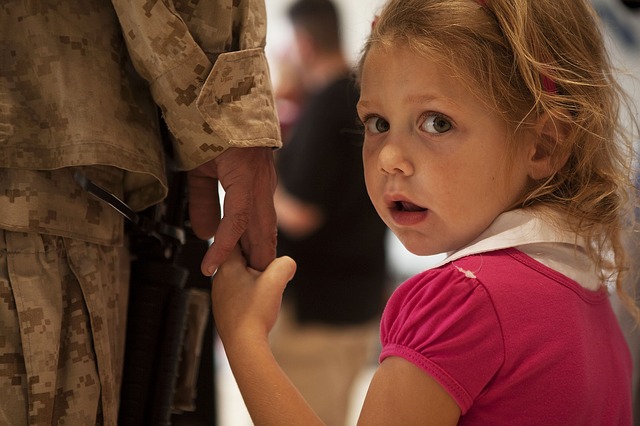
I’ve already written two parenting blogs about the Majors and the Minors, but there is a need for one more. The first post explained the difference between Majors and Minors. The second post gave two illustrations of some outlandish behaviors of our girls that we declared to be Minors!
This final post will be a step-by-step guide to recalibrating your current list of Majors into one which is more useful.
Whether you are conscious of it or not, you currently govern your children by a specific list of Majors. You likely don’t even think about the list, but it’s there. There are certain things you choose to engage in battle over, and other things you don’t.
HOW TO IDENTIFY YOUR CURRENT LIST OF MAJORS
If I were to videotape your interactions with your kids for a whole week I could write down a pretty accurate list of your Majors. Here’s what I would look for:
- Your use of commands is a dead giveaway. When you tell them what they have to do, you’re clearly revealing things on your Majors list.
- Your choice of consequences is another undeniable indicator of your Majors. What things cause you either to use obvious punishments (such as groundings, taking away a phone, or sending them to their room) or to use the more subtle concealed punishments (verbal scoldings, blame-and-shame tactics, labeling, bribery, or other forms of manipulation)?
- Your tone of voice is a less obvious, but equally clear gauge of what you treat as a Major. What behaviors do you raise your voice over? Or nag about? Or threaten regarding? Or get sarcastic about? These verbal cues subtly reveal your Majors.
- Your body language will also give it away. Are your hands on your hips? Are you frowning in disgust? Does your face look cross with disapproval? Are your brows furrowed? Are you rolling your eyes? Is your face turning red? Each of these wordless communications reveals that your kids have violated one of your Majors.
- Even how you pronounce your child’s name will reveal your list of Majors. Do you normally speak their name sweetly? Or sharply, with a tone of disdain? Is it said affectionately? Or does your voice’s pitch drop off at the end of their name, indicating your irritation with them?
FOUR STEPS TO RECALIBRATING YOUR MAJORS LIST
STEP ONE – Take Inventory
First, you must identify what things are on your current list of Majors. Pay attention to the five things listed above and write down the Majors that are indicated by your own behavior toward your children. Realize that you are naturally going to be blind to many of them because the interactions with your kids have likely become habitual. Recruit others to help you identify what your own behavior reveals about what seems to bother you most.
STEP TWO – Eliminate 90% of Your Majors
Looking carefully at your list, ask yourself which of those issues are worth jeopardizing your relationship with your kids over. My guess is that 90% of your current Majors are issues that don’t matter nearly as much as enjoying harmony with your kids.
Keep in mind that by Majors, we’re talking about things you absolutely require—things that are so important that you’re willing to engage in battles with your kids over them. These are demands of yours that justify having a strained relationship with your kids.
Most of the things that you’ll be crossing off of your Majors list–i.e. the Minors–are not that important. They may feel important to you at first, because you’ve clung to them so long, but they are really only preferences. They are certainly not important enough to justify erecting a wall over them between you and your kids. Re-read my first blog on this topic for a refresher on what factors should determine our Majors.
Your purged list of Majors should be noticeably shorter. In fact, you might be shocked by how small your list is! Not many issues are actually worth battling over, in fact, this process should greatly reduce the number of battles you have with your kids!
STEP THREE – Do Some Self-Reflection
This would be a good time to look at what you crossed off and ask yourself what made those things Majors for you in the past? Was it your own impatience? Was it your need to control? Was it a need to win battles with little people? Was it fear of them failing? Was it the embarrassment of what others might think of your parenting if your kids acted imperfectly? By asking these questions we’ll oftentimes discover that our own personal issues, fears, and insecurities have been causing many of the unneeded battles with our kids. Maybe we never had a “problem child” but rather a “problem ego!”
STEP FOUR- Let It Go
Just like the annoyingly memorable song from Frozen, we have to learn to let go of the things we formerly considered Majors. We will be tempted to return to the old list, harping on things that we wish were different. Bad habits die hard, so we will have to be aware of our tendency to glare, scold, command, frown, and punish our kids over things that, in the grand scheme of things, really don’t matter nearly as much as our kid’s hearts. We’ll have to let our preferences go unfulfilled and some of our expectations unmet. We’ll have to bite our tongue sometimes. We’ll often have to hide our disappointment. For the sake of relational closeness and harmony.
STEP FIVE – Enjoy Each Other
With the number of household battles potentially reduced by 90%, you’ll have much more time and opportunity to enjoy one another! By not sparring with them all the time perhaps you’ll start to see them as precious people with their own unique personalities, rather than your biggest disappointment. Perhaps you’ll discover who God made them to be, how He wired them, and what matters to them. Conversely, by not perceiving you as their constant critic or micromanager, they might also gain an interest in getting to know you, your heart, and what matters to you. Influence flows from relational harmony and mutual respect, and as I’ve blogged about before, influence is a much better parental strategy than control.
CONSIDERATIONS FOR COUPLES
I’ve written the above from the standpoint of a single parent, relating to a single child. But what about couples? What if their lists of Majors are not exactly the same? Three thoughts.
- Everything above still applies to married parents. Most of your interactions with your children happen one-on-one, between one parent and a child during the course of the day. If you improve your personal relationship with each of your kids, reducing the battles you have with them, the whole family benefits.
- There certainly will be areas where the parents will have to agree on household rules, i.e. acceptable expectations for children no matter which parent is present. Wise couples will have conversations about what rules are worth battling with kids over and which can be let go of. When agreement can’t be reached, commit it to prayer and consult with others who may offer insight. Be intentional, not hasty, when possible.
- Sometimes a decision needs to be made without reaching parental consensus. Keep in mind that, scripturally, the husband is ultimately held responsible in the eyes of God for the well-being of his family, and that his leadership is to flow out of his own sacrificial love for his wife and children.
FLEXIBILITY IS THE KEY
- The list of Majors will change somewhat over time and most household rules should remain flexible. Always be open to reasonable feedback from any household member. Ultimately, the parents are in charge, but everyone’s input should be valued and considered. As family dynamics change and as kids grow older the expectations should also change accordingly.
- Adjust rules according to the current needs of the moment. For example, when the baby isn’t sleeping, everyone can be loud. Or when a tidy mom is on a trip, dad and the kids shouldn’t have to keep the house immaculate–until just before she returns! Make sure the rules in force always serve a useful purpose and are not arbitrary.
 My mind raced back to Publishers Clearinghouse Sweepstakes commercials I had seen as a kid, where the TV “Prize Patrol” would arrive at the doorsteps of unsuspecting residents to announce that they had just won a million dollars. It was always fun to watch the family go bananas over this totally unexpected news: jumping, screaming, speechlessness, dancing, laughing, falling to their knees, etc. Just like the people in church on Sunday. Outlandish. Over-the-top. Undignified even.
My mind raced back to Publishers Clearinghouse Sweepstakes commercials I had seen as a kid, where the TV “Prize Patrol” would arrive at the doorsteps of unsuspecting residents to announce that they had just won a million dollars. It was always fun to watch the family go bananas over this totally unexpected news: jumping, screaming, speechlessness, dancing, laughing, falling to their knees, etc. Just like the people in church on Sunday. Outlandish. Over-the-top. Undignified even.






 Today I crossed the finish line of a very long race and am about to start another.
Today I crossed the finish line of a very long race and am about to start another.